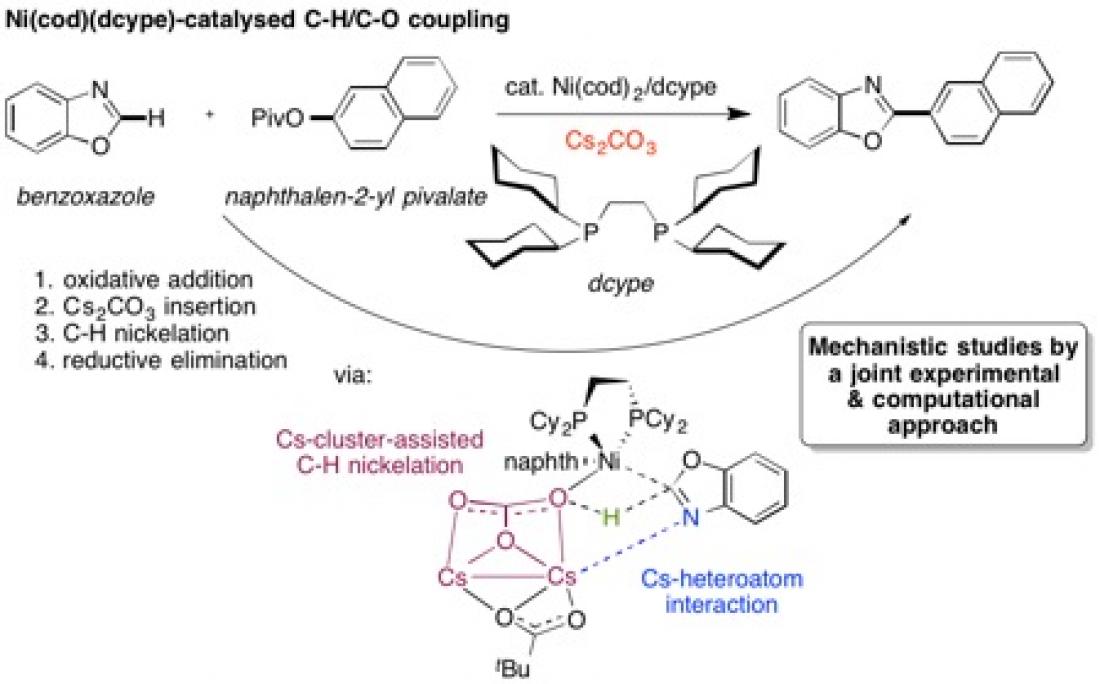Professors Djamaladdin G. Musaev (Emory University) and Kenichiro Itami (ITbM, Nagoya University) have verified the role of the base, cesium carbonate in the nickel-catalysed C-H/C-O coupling reaction by carrying out mechanistic studies using experimental and computational approaches. This result is an outcome from the collaboration between NSF's Center for Selective C-H Functionalization (CCHF) headquartered at Emory, ITbM and Sun Yat-Sen University in Guangzhou, China.
Reference:
"Key Mechanistic Features of Ni-catalyzed C-H/C-O Biaryl Coupling of Azoles and Naphthalen-2-yl Pivalates" Huiying Xu, Kei Muto, Junichiro Yamaguchi, Cunyuan Zhao, Djamaladdin G Musaev, and Kenichiro Itami, Journal of the American Chemical Society (2014)



